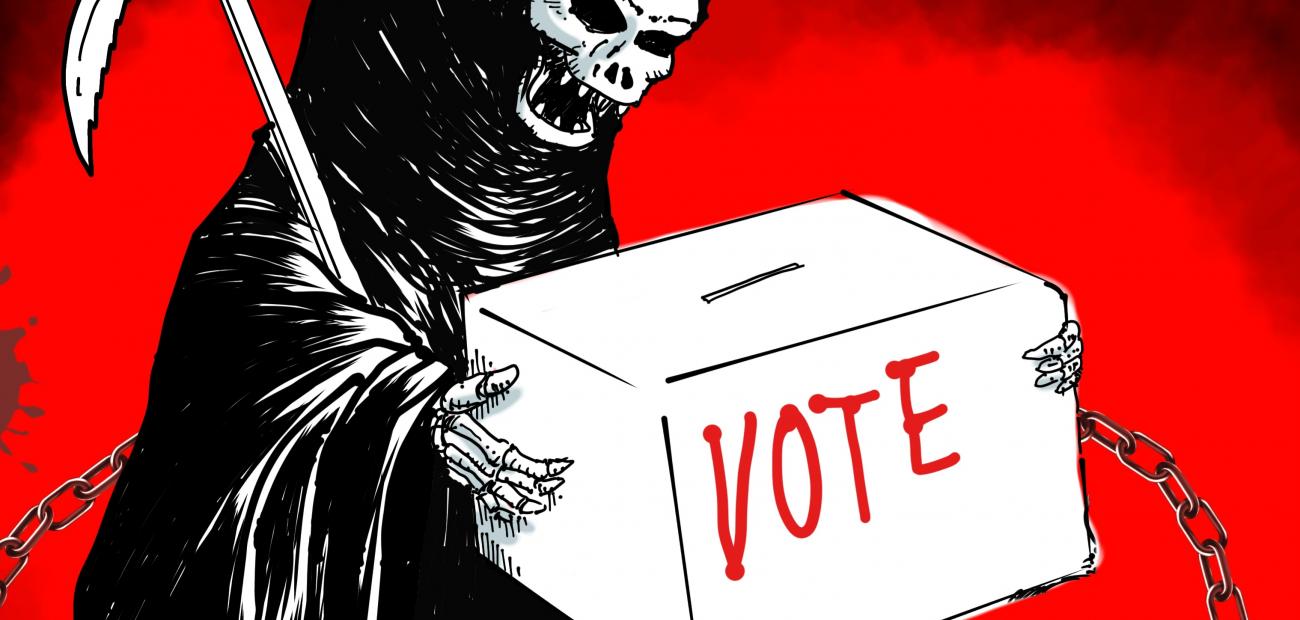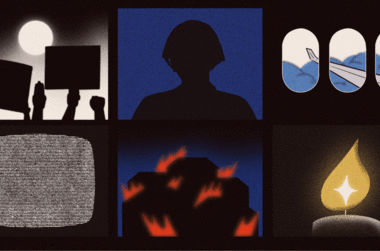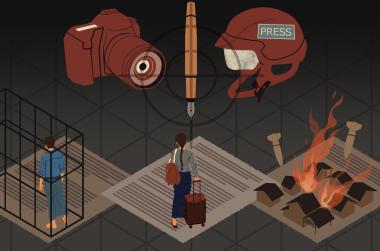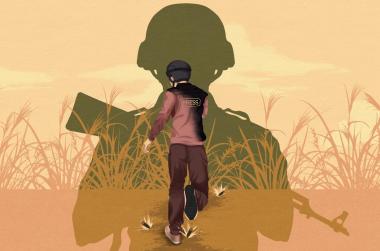The writer is a journalist in Central Myanmar who is receiving support from The Kite Tales to write these diaries.
A group of women are having an animated discussion about whether or not to vote in the elections that the military junta has said it will organise in the near future.
Despite the heated nature of the debate, the women make sure to keep their voices low so they are not overheard. Some are worried that if they take part in the election, they will be endorsing the army’s coup and their lives will continue to worsen. Others are concerned that if they stay away from the polls, the junta might target them and harm their family.
The last time the country held an election, in 2020, the National League for Democracy, led by Aung San Suu Kyi, won in a landslide. But that sparked the coup and now the party has been effectively banned and most of its leadership is in jail. So the choices on the ballot box will be very limited.
And there are more immediate safety concerns.
“What if a bomb explodes or there is shooting when I'm casting my vote?" says one of the women in the group. “I wouldn’t know where to run.”
She had voted a total of three times in her life. In each of the previous votes, she felt no fear except for having to stand in a long line while waiting to vote. But the upcoming election the junta is touting is different.
This time she feels mentally and physically unsafe. She has made her decision - she cannot vote under the current circumstances.
Not all the six women taking part in the conversation are in agreement. One says she will go out and vote if this is the only way to ensure the safety of her family.
For many people in Myanmar today, the biggest concern is to make ends meet. Since the coup d'etat in February 2021, the prices of basic food items and fuel have skyrocketed and the general public are feeling the squeeze from all sides. People are preoccupied with survival.
The notion of going through the motions of a sham election is very far away from most people’s priorities.
Min Aung Hlaing, the coup leader, has repeatedly talked about it, but has yet to say exactly when it will be held.
Nevertheless, the military dictatorship has made several changes to the electoral system. Most people see these moves as the junta ensuring the victory of their affiliated party, unlike in the previous two freer votes, when they lost by a wide margin.
For example, the junta has switched the electoral system from first-past-the-post, where the winner of overall votes takes the most seats, to the proportional representation (PR) system.
It also amended the political party registration law, stipulating the need to have 100,000 party members and 100 million kyats (around $45,000) in funds. These requirements make it really difficult for some small parties to contest the elections.
“The term multiparty democracy means you have to have multiple parties for it to be a democracy. How is this election going to be free and fair when there are parties that are not allowed to register or are finding it difficult to register?" a youth I know confided in me during a chat.
Besides, the youth said, how will the election be held when the sound of bombs and gunshots are shaking the country and people are fleeing?
Fighting continues in many parts of Myanmar, which means the dictatorship is unable to control many parts of the country. There are also regular attacks against security forces in big cities like Yangon and Mandalay.
In fact, Min Aung Hlaing himself acknowledged this during a January 31 meeting of the National Defense and Security Council. He said of the 330 townships across the country, the military is able to fully control only 198 townships. He added that there are 67 townships where security needs to be beefed up and 65 townships where control needs to be more effective.
And yet, the junta continues to conduct census data collection in some states and regions. They say this is to make sure the voting list is accurate, after using claims of irregularities as a pretext for the coup.
My family is also affected by rising commodity prices, so I really want a government that can look after the well-being of the people.
But this coup government is ruling by fear and murder.
So in our debate about whether or not to vote, I count myself among the women who will not be casting a ballot when the time comes.
The artwork is by an anonymous illustrator who is receiving support from The Kite Tales to produce illustrations.





